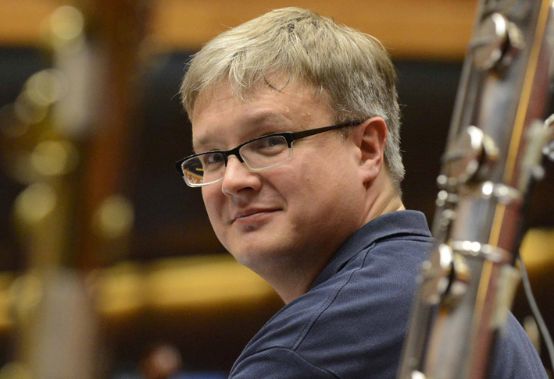Helvetic fire in Meiningen
The Swiss Philippe Bach has been General Music Director of the historic Hofkapelle since 2010. In his programs, he builds bridges from one country to another with many Swiss performers and works.

From Bach to Bach. This is a brief description of the history of the 325-year-old Meiningen court orchestra. It was Johann Ludwig Bach, a distant relative of the great J. S., who, followed by other members of the widely ramified family, transformed the royal seat of Saxony-Meiningen into an important musical center with the court orchestra in the first third of the 18th century. For six years now, a completely different Bach, namely a Swiss Bach, has been at the helm of Meiningen's musical culture as General Music Director: Philippe Bach, who studied horn and conducting in Bern, Geneva, Zurich and Manchester, took over one of the most historic German orchestras in 2010.
Proud history
Meiningen is a quiet and pretty small town in southern Thuringia between the Rhön and the Thuringian Forest, which has been spared to some extent from the hardships of recent German history. However, Meiningen is also a unique cultural center. First of all, there is the court orchestra, a symphony orchestra with a good sixty members, whose meteoric rise before and around 1900 is associated with names such as Franz Liszt, Johannes Brahms, Hans von Bülow, Richard Strauss and Max Reger or that of the violinist Alexander Ritter and the clarinettist Richard Mühlfeld. It was the Meiningen court orchestra that shaped the Bayreuth Festival Orchestra for years, not only because of its proximity but also because of its outstanding qualities. There is the Meiningen Theater, where - also at the end of the 19th century and probably for the first time in history - an early form of director's theater and a consistently naturalistic directorial and visual concept was developed, which made history under the heading "Meiningen Principles". For years, the Meininger Theater toured Europe on the newly built railroad lines, always carrying the detailed and voluminous stage sets by Coburg theater painter Max Brückner in up to 20 railroad carriages. No wonder the people of Meiningen still revere Duke Georg II like a city father. From 1866, the so-called "Theatre Duke" had not only supported the orchestra and theater for more than half a century, he had also directed and sketched stage props and, not least, stood up to the Wilhelmine Empire as a socially liberal-minded politician.
Today, there are also the Kammerspiele, which focuses on experimental plays, the puppet theater or the cabaret and dance houses ... Meiningen is an extraordinary city of art and, with its 20,000 inhabitants, only half the size of Thun or Aarau.








